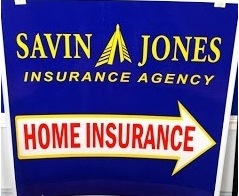Does a Homeowners Policy Cover Damages During an Airbnb Rental?

Like everything else touching the law, it depends. There are some policies which protect homeowners and renters from certain types of lawsuits that result from injury to a visitor, while other policies do not. Generally speaking, homeowners policies widely vary from insurer to insurer and from state to state. However, policies almost always exclude coverage for homeowners who are running a "business" in their homes. In other words, if a homeowner "regularly" earns money by renting the premises to short-term paying guests, an insurer could plausibly deny coverage and claim that the homeowner is running a hotel or bed and breakfast type business.
Airbnd, and other similar "home-sharing" services, is a growing part of the economy. Like Uber and Lyft, known as "ride-sharing" services, they have left consumers with coverage gaps and little to no commercially available insurance products to cover all or at least a portion of those risks.
Coverage for "Business" Operations Under a Typical Homeowners Policy
In short, "Homeowners" coverage is not for "businesses." The common "Homeowners 3 — Special Form"( Policy Form No. HO 00 03 10 00) lists a number of definitions relevant to an Airbnb rental. Here are several to consider:
"Business. " The policy defines “business” as a trade, profession or occupation engaged in either full-time, part-time or occasionally, or any other activity engaged in for money or other compensation (barring certain exceptions).
"Insured. " Insureds are “you and residents of your household that are your relatives or are under the age of 21,” and in the care of the names insured(s), as well as students under age 24 and attending school full time who were previously residents of the household.
"Insured location. " The insured location is the "residence premises". If the location is not being used by an insured as a residence, it is likely not an insured location.
To assuage these concerns, Airbnb offers its hosts something called Host Protection Coverage, which provides primary liability coverage for up to $1 million per occurrence in the event of third party claims of bodily injury or property damage. The program does not apply to liability arising from (1) Intentional Acts including: (i) Assault and Battery or (ii) Sexual Abuse or Molestation - (by the host or any other insured party), (2) Loss of Earnings, (3) Personal and Advertising Injury, (4) Fungi or Bacteria, (5) Chinese Drywall, (6) Communicable Diseases (7) Acts of Terrorism, (8) Product Liability, (9) Pollution and (10) Asbestos, Lead or Silica.
Some Insurance Companies Plans to Begin Providing New Policy Endorsement to Cover Personal Property Damage Occurring During Home-Sharing Rentals
There have been numerous instances of homeowners insurers denying coverage for Airbnb rentals. Since Airbnb began operating in 2008, homeowners serving as hosts have been left with limited options in the insurance market for expanding the scope of their avail:able coverage for the risks of a rental.
However, some insurance companies recently announced that it plans to offer home-sharing protection in six states – Arizona, Colorado, Illinois, Michigan, Tennessee and Utah – starting in mid-August. Allstate will become the first major insurer to offer personal property protection targeted to the needs of home-sharing hosts. The product is called the "HostAdvantage endorsement" and, pending regulatory approval, it will do the following:
- Help to fill some of the personal property protection gaps that may exist in a typical homeowners policy for customers who occasionally rent out their homes to temporary renters. The endorsement will help protect homeowners from unexpected out-of-pocket expenses. For example, if a home-sharing renter destroys some furniture or steals electronics.
- The homeowners deductible still applies, but hosts are covered for their personal property up to $10,000 per rental period, subject to the policy terms, conditions, limitations and exclusions.
- Some insurance protection can be added to a homeowners policy ask your local insurance agent.
Some insurance companies target the specific needs of its customers who participate in home-sharing and provides a trusted brand that enhances a customer’s current homeowner policy.
All we can say is check with you local insurance agent for insurance coverage questions: www.savinjones.com
Quote Us!!
800-550-INSURE
www.savinjones.com
